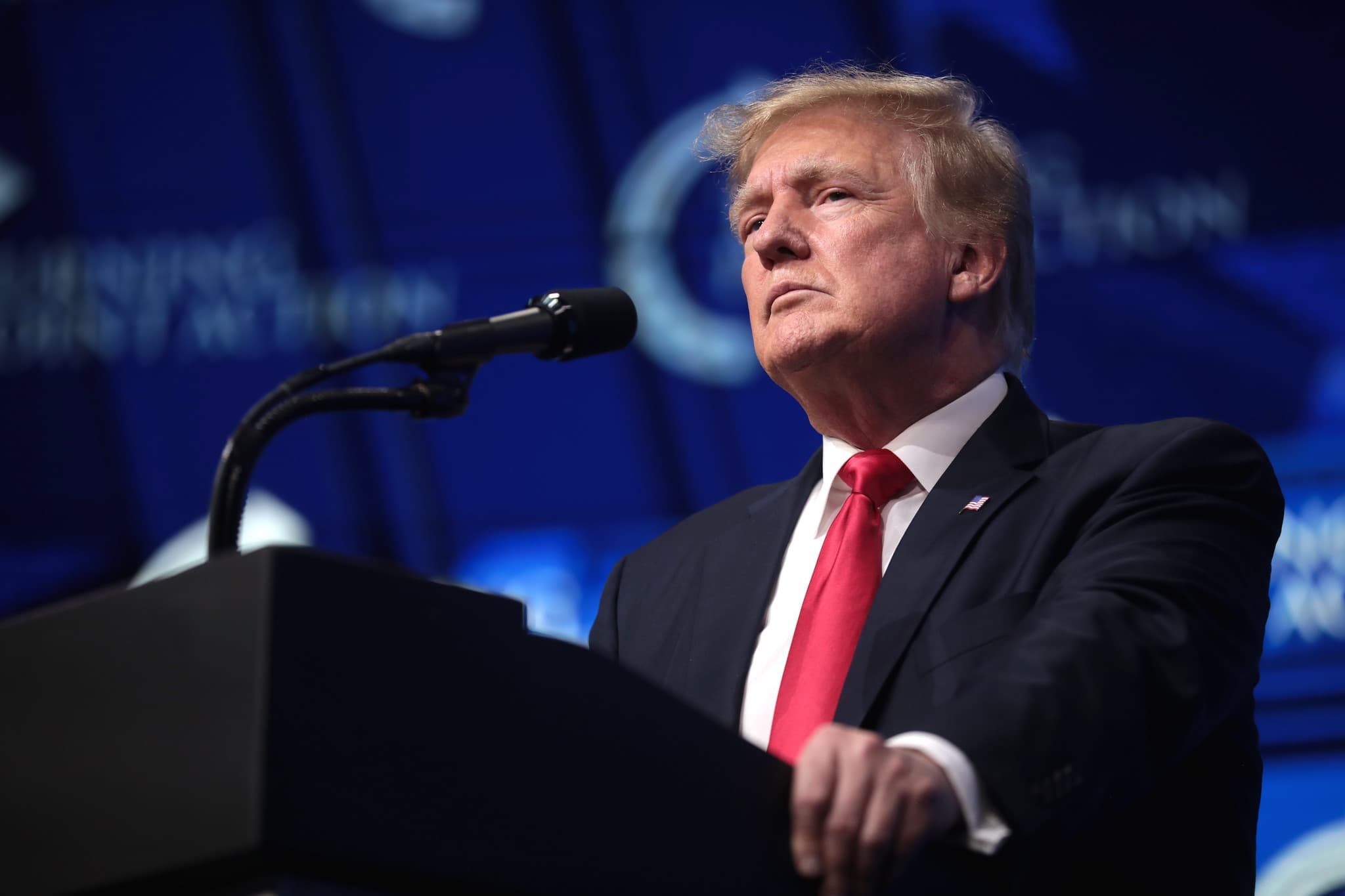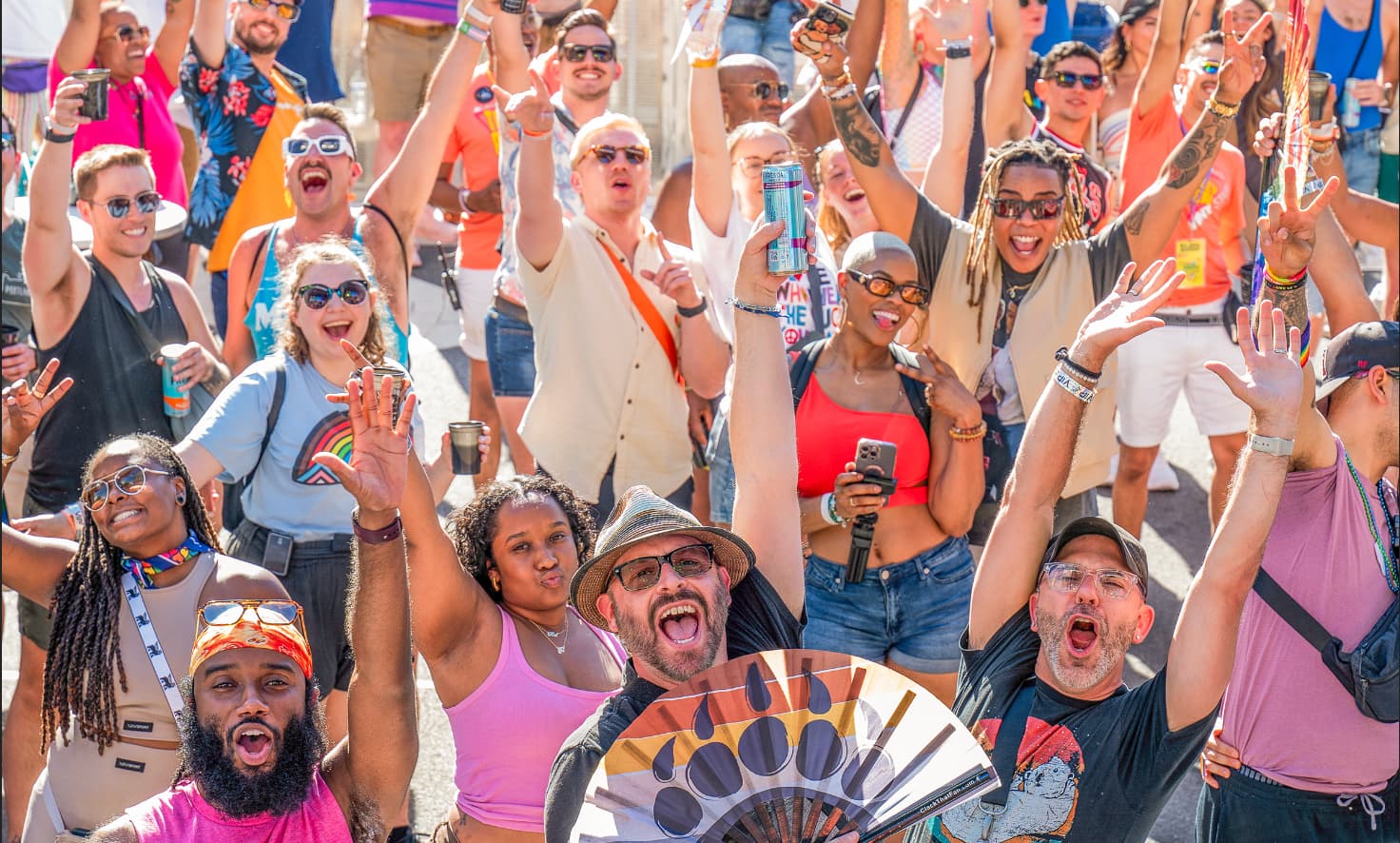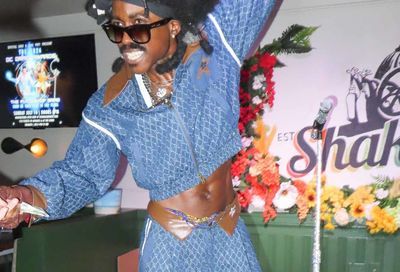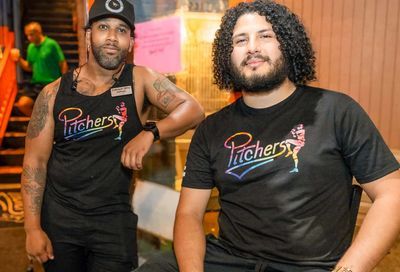Protester with Pride Flag Disrupts World Cup Match
The man, who appeared to be protesting Qatar's LGBTQ record, has been banned from future World Cup matches.

A protester ran onto the field during the World Cup match between Portugal and Uruguay at Qatar’s Lusail Stadium on Monday while waving a rainbow Pride flag.
Security officials chased the protester down and the flag was dropped on the field before the protester was escorted away. The referee then picked up the flag and left it on the sideline, where it remained until a worker came to collect it.
The protester, who was wearing a blue Superman T-shirt, appeared to be protesting a number of different injustices, with the rainbow flag signifying criticism of World Cup host nation Qatar’s criminalization of homosexuality and hostility toward LGBTQ rights.
The Superman T-shirt he had been wearing was emblazoned with “SAVE UKRAINE” on the front and “RESPECT FOR IRANIAN WOMAN” on the back, which refer to Russia’s illegal invasion of Ukraine and the Iranian government’s crackdown against protesters and its flawed record on women’s rights and equality.
The protester was ushered away by security through a tunnel, though it wasn’t clear whether he was charged with a crime or had been detained by police, reports The Associated Press. Qatari authorities declined to comment on the incident.
However, a spokesperson for the Supreme Committee for Delivery & Legacy, which is responsible for host country planning and operations for the 2022 FIFA World Cup, later told the British newspaper The Guardian that the protester “was released shortly after being removed from the pitch.” The Supreme Committee said the embassy of the protester’s home nation — which is still unknown — has been informed of the incident.
According to The Guardian, the protester had his Hayya card — which doubles as a permit for international fans to enter Qatar and allows them to attend games and travel for free on the metro — revoked. The protester has also been banned from attending future World Cup matches at the tournament.
Portuguese player Rúben Neves later defended the protester’s actions.
“We know what has happened around this World Cup,” Neves said, referencing the various controversies. “It’s a normal thing to happen. Of course, we are all with them as well. Iran as well, because I saw his shirt. I hope nothing happens to the boy because we understand his message and I think all the world understood it as well.”
This year’s World Cup, the first to be hosted by a Middle Eastern nation, has been surrounded by controversy over Qatar’s record on LGBTQ rights and the country’s treatment of migrant workers, many of whom have died while working in substandard conditions and others who have been treated as virtual slaves due to Qatar’s rigid rules around work permits. Many migrant workers were involved in the construction of various soccer stadiums and other accommodations for spectators and players.
Since the start of the World Cup, Welsh fans have had rainbow hats confiscated or removed by security guards, and some supporters of the Iranian national team were told not to wear T-shirts expressing support for anti-government protests in Iran or they would risk being denied entry to stadium matches.
During the tournament’s opening ceremonies, FIFA President Gianni Infantino lashed out at Western critics of Qatar, accusing them of “hypocrisy” and “racism” for their own countries’ records on LGBTQ rights, human rights abuses, or treatment of migrant workers. That speech also served as a defense of FIFA’s decision to select Qatar as the host nation for the 2022 World Cup.
Another controversy that has emerged from the international soccer tournament is FIFA’s decision to threaten to penalize European teams who attempted to wear multi-colored “One Love” armbands during matches as a show of support for LGBTQ inclusion — which led Germany’s team to stage a silent protest. While organizers have insisted that all fans, including those who identify as LGBTQ, are welcome, they have also warned spectators that they should respect the nation’s culture and socially conservative values.
The head of the World Cup’s organizing committee, Hassan al-Thawadi, described the rainbow flag as “divisive” in an interview on Monday. Thawadi said he had an “issue” with the armband because he saw it as a protest against Islamic values and against the very concept of an Islamic country serving as the host nation.
“It the teams decided to do it throughout the entire season, that is one thing,” he said. “But if you’re coming to make a point, or a statement in Qatar, that is something I have an issue with. And it goes back to the simple fact that this is a part of the world that has its own set of values.
“This is not Qatar I’m talking about, it’s the Arab world,” he added. “For the teams to come and preach or make statements, that’s fine. But what you’re essentially saying is you’re protesting an Islamic country hosting an event. Where does that end? Does that mean no Islamic country can never be able to participate in anything?”
Support Metro Weekly’s Journalism
These are challenging times for news organizations. And yet it’s crucial we stay active and provide vital resources and information to both our local readers and the world. So won’t you please take a moment and consider supporting Metro Weekly with a membership? For as little as $5 a month, you can help ensure Metro Weekly magazine and MetroWeekly.com remain free, viable resources as we provide the best, most diverse, culturally-resonant LGBTQ coverage in both the D.C. region and around the world. Memberships come with exclusive perks and discounts, your own personal digital delivery of each week’s magazine (and an archive), access to our Member's Lounge when it launches this fall, and exclusive members-only items like Metro Weekly Membership Mugs and Tote Bags! Check out all our membership levels here and please join us today!



























You must be logged in to post a comment.